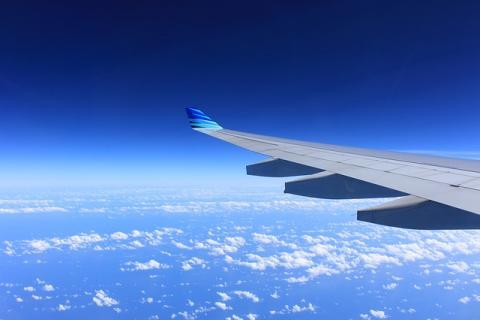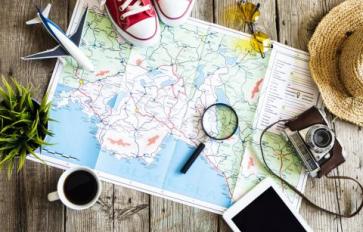
Throughout my travels, I have easily learned that flying across multiple time zones in a short period of time causes what we have termed "jet lag." It's not so hard to recognize whether you're having jet lag or not; there are quite a few well-known symptoms which include fatigue, anxiety, headache, irritability, and insomnia. For frequent fliers, these symptoms might as well be their buddies throughout the trip.
It all starts when our sleep schedule is changed at a moment's notice. Our established patterns of sleeping, eating, exercising, etc. are interrupted. Our body becomes confused, and the symptoms begin.
Why does it happen?
Our bodies work on a 24-hour cycle called the circadian rhythm. This rhythm is gauged by how much our body temperature and plasma levels of some hormones rise and fall. All of these conditions are further influenced by our exposure to sunlight throughout the course of a day.
When we travel to a new time zone, our circadian rhythms have difficulty adjusting to the new time zone, for this new time zone changes meal times, sunlight exposure, sleep schedules, and more.
As a result, our bodies do not know what to do – we want to sleep when there is still daylight, and we continue to get hungry during the meal times of our previous destination. This, my friends, is known as jet lag.
Let's not forget that jet lag is usually more obvious when a person travels east to west or vice versa. You have less chances of experiencing jet lag if you go north to south or the other way around because time zones remain the same. However, some symptoms usually still occur from the stress and time of traveling.
So just how exactly do we avoid it?
BEFORE THE FLIGHT
Get in shape
People that are more physically fit have better stamina, which reduces the amount of fatigue they experience.
Schedule for an early evening arrival
Since you were just on a long flight, chances are you will be tired and want to sleep. If you sleep at this time, you will have a good chance of getting a full night's sleep. However, a tip like this is not always feasible - work, family, and other obligations will usually restrict the time of your flight.
Hydration is key
Drinking plenty of water before, during, and after your flight will help alleviate dizziness, fatigue, and constipation.
DURING THE FLIGHT
Eat light meals
You could opt for eating a light meal before boarding a plane so you won't have to binge-eat throughout the flight. This not only stops you from eating junk food, it also somehow offsets the lack of activity you'll have.
It may be best to consider avoiding foods that give gas, such as beans, corn, and onions. This is because bodily gases increase during flight and the digestive process slows down.
Another way is to fast during the flight. Some believe that fasting can override your body clock by delaying sleep. It is also worthy to note how the immune system remains more active if a meal is not digested.
Avoid drinks that can dehydrate you
Consider bringing some herbal teas, and ask the flight attendant for hot water. Avoid alcohol at all costs. Alcohol can heighten the stress of an experience due to how higher altitudes increase the effects of drinking.
Walk and stretch during a long flight
Most airlines have a range of exercises via the in-flight magazines to help blood circulation. Some of these exercises include lifting your calves or rotating your ankles. Special compression socks can also reduce your chance of getting deep-vein thrombosis (DVT) and blood clots.
Don't nap longer than 45 minutes
This is partly due to how our bodies react when we wake-up short of an entire sleep period. You’ll get that foggy feeling, and sleeping after that won't really help as much.
Get some Melatonin
Melatonin is a naturally secreted hormone that relieves insomnia and jet lag symptoms. There is some evidence that melatonin can increase your tendency to sleep during the day; however, it will not affect the amount of sleep needed at night.
It is available in health food stores. It is still highly under debate in the medical community, and has not been approved by the FDA. Since melatonin is not regulated in the US, its purity and potency is not controlled. Best consult your primary health provider first.
AFTER THE FLIGHT
Get some sun – immediately, if possible
This is important if you came in from a long flight. Basking in the sun will help keep you up specially if your body tells you to sleep. This will tell your brain to skip sleep for now and help you adjust faster to the sleeping pattern of the location.
Avoid strenuous activities
You just shocked your body by changing everything. Relax at the hotel and plan your itinerary.
Adjust your meal and sleep time
In order to not have jet lag for the remainder of your trip, your body needs to sync up to the time frame of your destination. You can gradually change your sleep in the days leading up to your vacation if you so desire.








